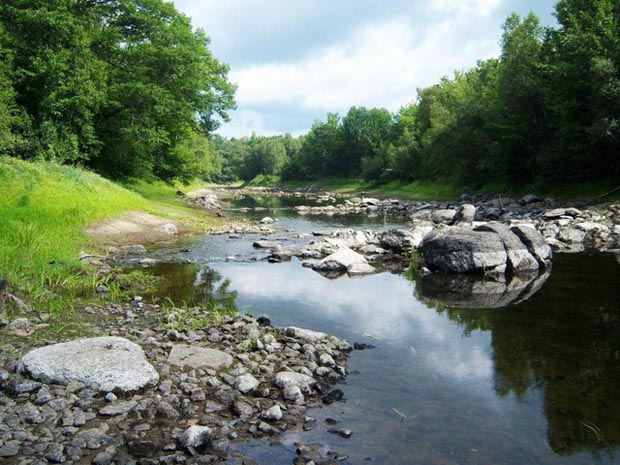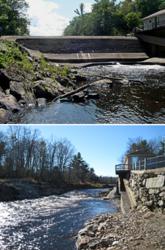The Atlantic Salmon Federation (ASF) announced it has now restored access to 15,000 acres of ponds and lakes and 300 miles of river for Maine’s native sea-run fish
Brunswick, Maine
 [dropcap]T[/dropcap]he Atlantic Salmon Federation (ASF) announced it has now restored access to 15,000 acres of ponds and lakes and 300 miles of river for Maine’s native sea-run fish. These achievements are part of ASF’s Maine Headwaters Project that is focused on restoring critical spawning habitat to sea-run fish in tributaries identified as high priorities in State of Maine fisheries restoration plans. While the target species are Atlantic salmon and alewives, these restoration projects provide a broad range of benefits for all fish and wildlife along the river corridor.
[dropcap]T[/dropcap]he Atlantic Salmon Federation (ASF) announced it has now restored access to 15,000 acres of ponds and lakes and 300 miles of river for Maine’s native sea-run fish. These achievements are part of ASF’s Maine Headwaters Project that is focused on restoring critical spawning habitat to sea-run fish in tributaries identified as high priorities in State of Maine fisheries restoration plans. While the target species are Atlantic salmon and alewives, these restoration projects provide a broad range of benefits for all fish and wildlife along the river corridor.
Over the past decade, ASF has completed 13 projects that include six dam removals, five constructed fish ladders, and two road culvert replacements on tributaries in the Penobscot, Androscoggin, Pleasant and East Machias rivers. Working with its Maine Council, ASF is aggressively pursuing getting fish past these obstacles – one blockage at a time. “Our work is cut out for us,” said Andrew Goode, VP of ASF’s U.S. Programs. “There are close to 2,000 dams across our State, over 90% of which are located in tributary streams where most of the high quality spawning and rearing habitat for migratory fish is found.”
Though ASF has been working on these projects for the past decade, they officially launched their Maine Headwaters Project in 2013 to better represent their increased focus and capacity to accelerate the pace of much needed restoration for sea-run fish that are all at 1% or less of their historic level in Maine. This year, they anticipate completing three more projects in the Penobscot, Ducktrap, and Downeast watersheds. Over the next five years, they anticipate restoring full access to another 9,000 acres of lakes and ponds and 150 miles of tributary streams.
Click here to read complete story […]








Join the discussion One Comment